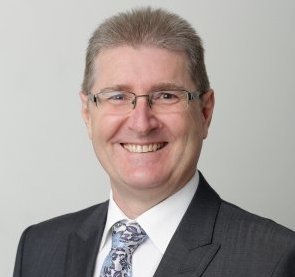
Carol Altmann – The Terrier
Lawyers for sacked Warrnambool City Council CEO Peter Schneider today argued in the Supreme Court that he was a victim of “subterfuge” and a “concerted plan” by four former councillors to get rid of him.
Today (23/3) was the opening of a two-day hearing into whether Mr Schneider was denied natural justice when he was sacked on 13 July last year on a 4/3 vote of the then-councillors.
The day started with a surprise move from the council’s lawyer, Ragu Appadurari (Russell Kennedy lawyers), suggesting witnesses could be called to give evidence and cross-examined, rather than the court relying solely on written affidavits already lodged.
This move would have potentially blown out the length of the hearing and delayed the delivery of a judgment until the end of the year: making it impossible for the WCC to appoint a CEO until late 2021.
The Honourable Justice Michael McDonald said, if witnesses were called, he could no longer aim to meet a 26 June deadline that he set after last week’s injunction hearing.
Perhaps not surprisingly, this move to call witnesses was dropped by the WCC after a short adjournment.
The rest of the day was spent by Mr Schneider’s counsel, David Grace QC, outlining the key points of his case, including the seeking of legal advice by then Councillors Kylie Gaston, Michael Neoh, David Owen and Sue Cassidy.
Mr Grace argued this legal advice from Maddocks lawyers was not approved by the full council, was not shared with the other three councillors and was used to map out “the easiest way” to get rid of Mr Schneider with less risk of court action, or public outrage.
That “easiest way” outlined by Maddocks was to sack Mr Schneider using the “no reason” clause in his contract, rather than sack him for poor performance, Mr Grace said.
The case hinges on whether this “no reason” clause holds more weight than the protections of the Local Government Act.
The court also heard that former Mayor Tony Herbert, having learned of the move to sack Mr Schneider on 13 July, prepared 31 questions to ask at the meeting.
These questions included whether the councillors would give Mr Schneider a chance to defend himself.
The four councillors, however, “stayed mute” to all 31 questions, having received legal advice not to respond.
If they did respond, they would then have to justify the “causes” for sacking the CEO, Mr Grace said.
Justice McDonald earlier in the day indicated he had had some taste of the dysfunctional relationships within the former WCC from the affidavits lodged by the four councillors, Mr Herbert, the acting CEO and Mr Schneider.
“I will not be having any regard to any of the material about so-and-so had an unprofessional relationship with so-and-so…for heaven’s sake,” Justice McDonald said.
“I don’t have any enthusiasm at all for hearing evidence on the inner workings of the WCC…(and) it is of no legal bearing on the legal questions which will determine the case.”
The hearing continues tomorrow with Mr Grace, followed by Mr Appadurari for the defence.

